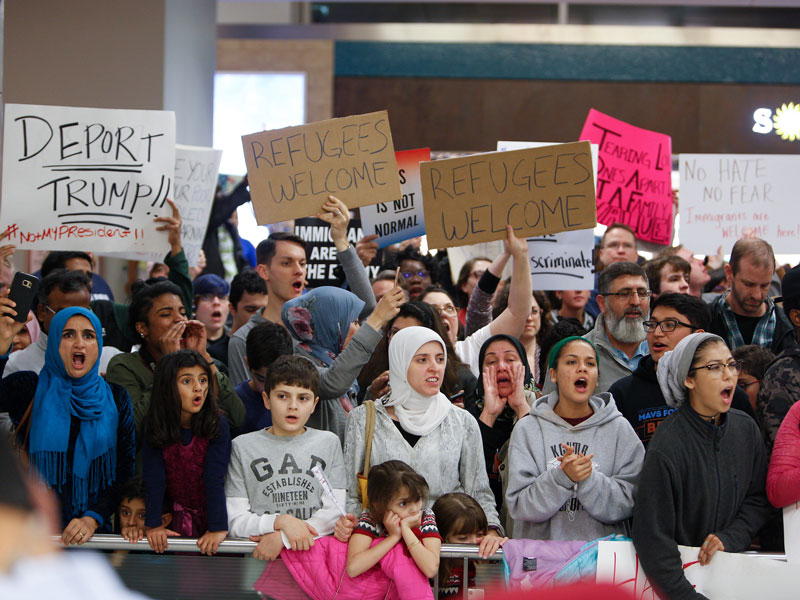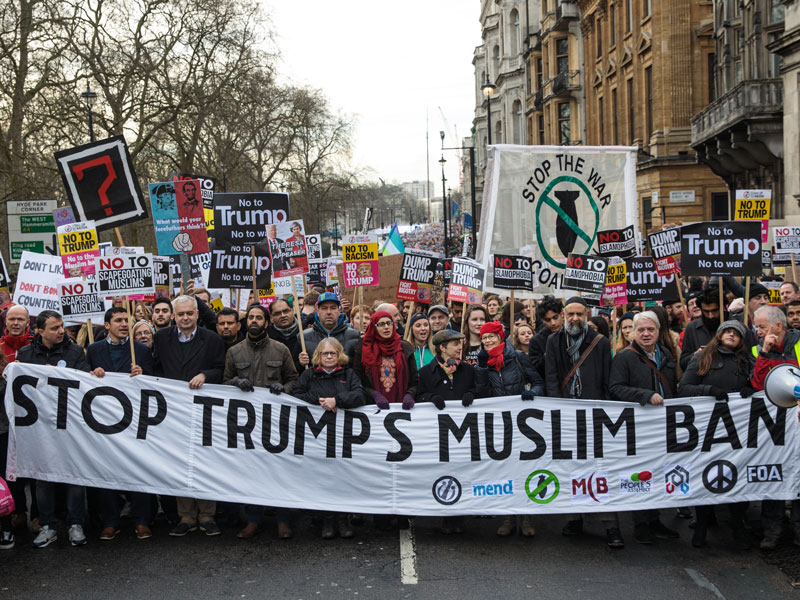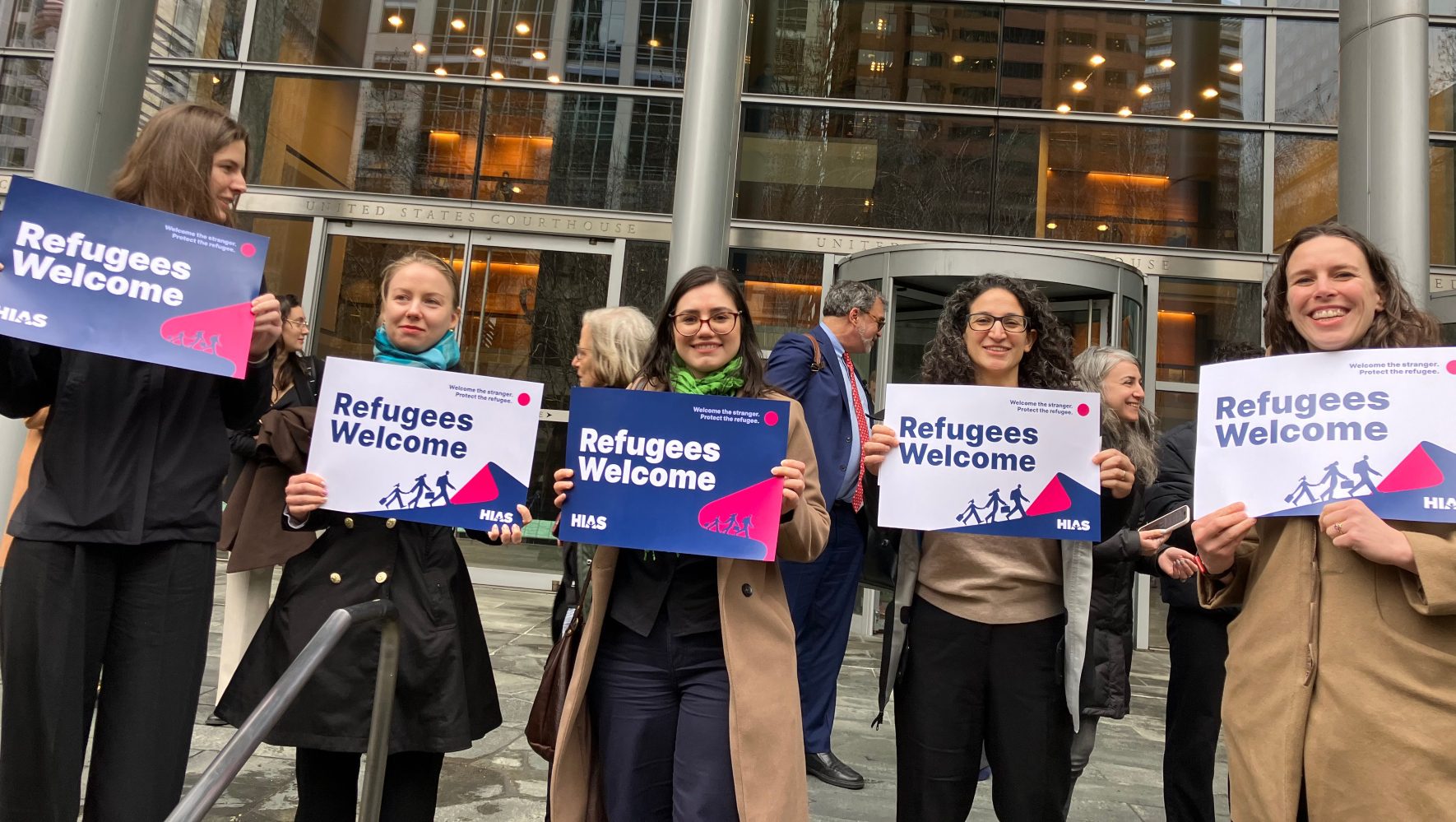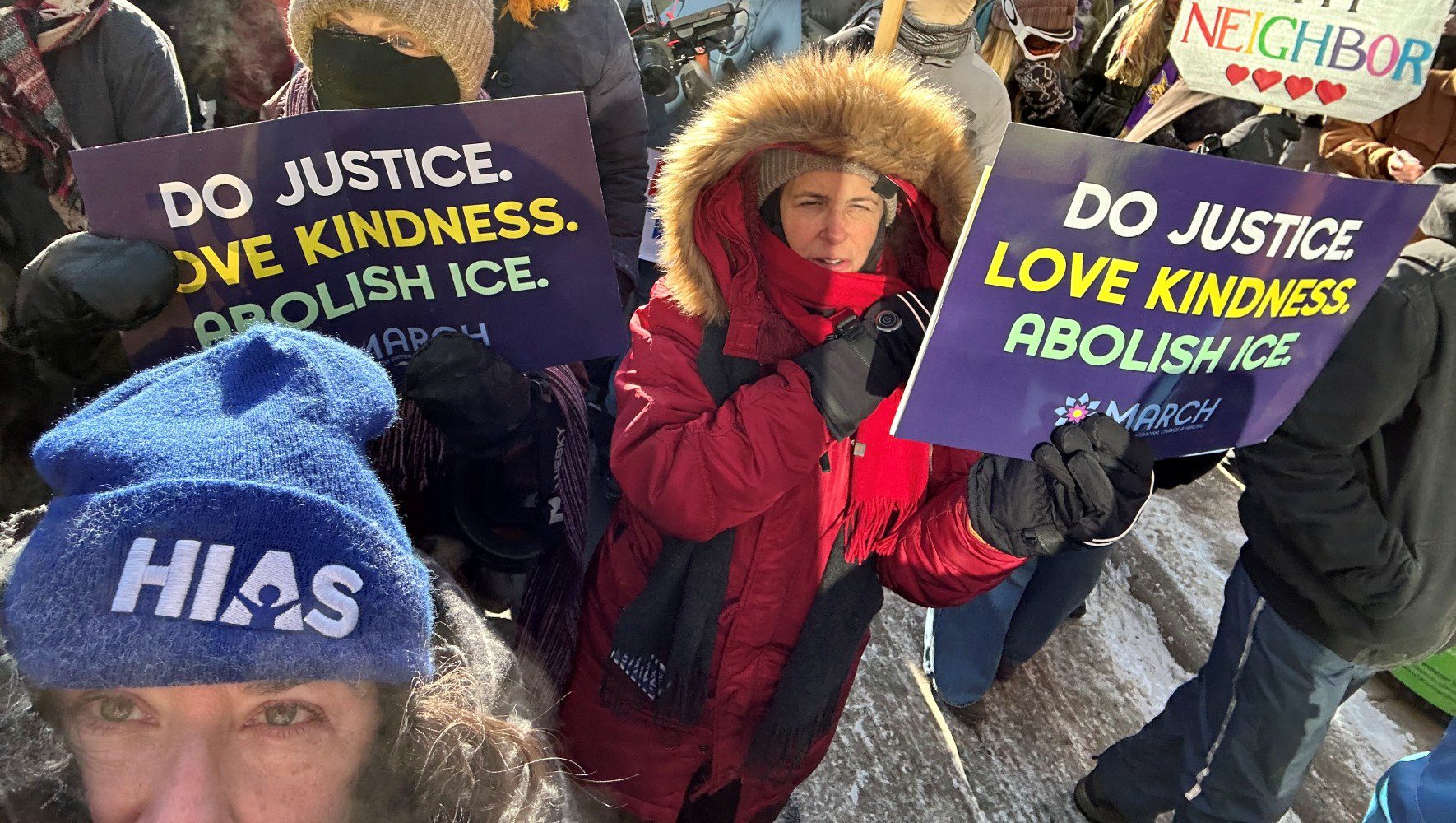Still Fighting the Muslim Ban After Two Years
By Sharon Samber, HIAS.org
Jan 27, 2019
It’s been two years since President Trump first signed an executive order to ban Muslims from entering the country.
In one of his first actions after taking office, Trump signed the initial version of the ban, often referred to as Muslim Ban 1.0, on Jan. 27, 2017, poignantly, International Holocaust Remembrance Day. Protests began almost immediately, and HIAS joined hundreds of thousands of people at airports and rallies in support of refugees.
Significant portions of the ban, as well as later versions of it, were blocked by federal courts, some finding the bans to be discriminatory, anti-Muslim, unconstitutional, or an abuse of the president’s power. There were many legal ups and downs in 2017 (see our detailed timeline here) and HIAS sued the government, the only Jewish organization to do so.
HIAS President and CEO Mark Hetfield said that the ban was “not simply an exercise in executive authority” but the administration’s official license “to discriminate on the basis of religion and nationality.”
The ban turned out to be just the beginning of a concerted campaign to limit immigration, those seeking asylum and scale back the U.S. Refugee Resettlement Program. Each year since taking office, the administration has lowered the number of refugees allowed into the country. Again and again the president has denigrated and cast suspicion on those seeking safety in the U.S.
On June 26, 2018, Travel Ban 3.0 was upheld by the U.S. Supreme Court. The executive order restricts the entry into the United States for all nationals, including refugees, of mostly Muslim-majority countries–Syria, Iran, Yemen, Libya, Somalia–but also includes North Koreans and certain Venezuelan government officials.
There are still lawsuits pending which challenge the current refugee ban, and seen in the best light, the legal battles waged thus far have succeeded in forcing early versions of the ban to be rewritten, thus holding the doors open for at least some refugees. But the difficult truth is, over the past two years, very few refugees from the banned countries have been allowed into the U.S. In 2016, the U.S. resettled 12,587 Syrians; in 2018 just 60. In 2016, the U.S. resettled 9,020 Somalis; in 2018, only 250.
“Thousands have been hurt by the bans,” said Melanie Nezer, HIAS Senior Vice President of Public Affairs. “The reality is thousands of refugees who otherwise would have had a chance at a future in the U.S. do not have that chance to find safety here.”
Two years later, HIAS is resolved to keep fighting for refugees. HIAS has rallied the Jewish community and will continue to protest, fight, and advocate to help change law and policy, galvanize people to take action, and gather more support for these important issues.






